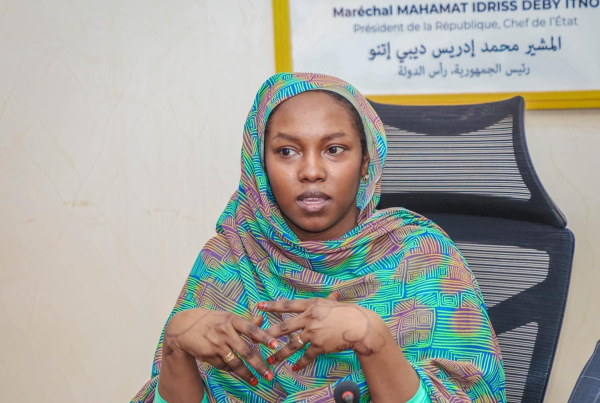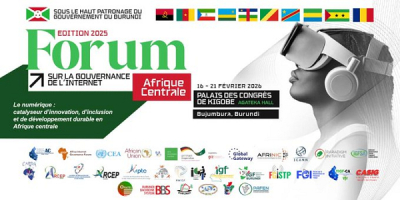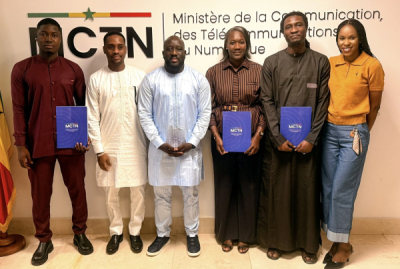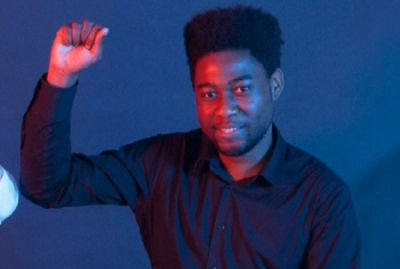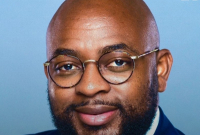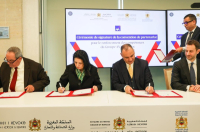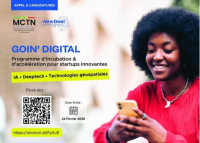- Chad opened talks with Azerbaijan to digitalize transport services and infrastructure.
- Discussions covered e-documents, smart traffic management, and airport digital platforms.
- Authorities kept the partnership at the discussion stage while technical work continued.
The Chadian government explored a partnership with Azerbaijan to accelerate transport sector digitalization. The agenda dominated a meeting held on Monday, February 16, between Boukar Michel, Minister of Digital Economy, and Fatima Goukouni Weddeye, Minister of Transport, who received an official Azerbaijani delegation on mission in Chad.
The talks focused on several strategic priorities for the sector. The discussions covered the digitalization of transport documents and services, the deployment of intelligent road traffic monitoring and management systems using geolocation, and the modernization of airport platforms through integrated digital solutions. Both sides also examined advanced control, alert, and surveillance systems to strengthen security and improve operational performance.
According to Chadian authorities, “the Azerbaijani delegation presented proven technological solutions adapted to national realities and capable of effectively supporting the digital transformation of Chad’s transport sector.”
This rapprochement formed part of a broader framework to strengthen cooperation between Chad and Azerbaijan on digital transformation, which began in late January 2026 with the signing of two memorandums of understanding. Boukar Michel said the initiative aligned with the national digital transformation strategy, which aims to improve public service quality, increase transparency and administrative efficiency, strengthen the security of strategic infrastructure, and stimulate innovation and economic attractiveness.
In the transport sector, the supervising ministry had already announced, in September 2025, the launch of a large-scale project to digitalize its financially oriented administrative services. The project plans to deploy an integrated digital system that centralizes all services, including vehicle registration cards, driving licenses, transport licenses, accreditations, and the mandatory waybill.
Authorities said the proposed cooperation between Azerbaijan and Chad on transport digitalization remained at the discussion stage. However, officials said technical work would continue to identify priority projects, define a clear operational framework, and establish an implementation timeline.
This article was initially published in French by Isaac K. Kassouwi
Adapted in English by Ange J.A de Berry Quenum
African startups led by young women are invited to apply for the AI Ventures Accelerator, a free 12-week program aimed at supporting early-stage ventures. Selected teams will receive technical and business training and may qualify for up to $10,000 in equity-free seed funding. Applications close on Sunday, February 22.
The Government of Burundi is hosting the 2025 Central Africa Internet Governance Forum in Bujumbura. The event, which began on Monday, February 16, and concludes on Saturday, February 21, centers on the theme of “Digital Technology: A Catalyst for Innovation, Inclusion and Resilience in Central Africa.” Key topics on the agenda include expanding digital access, strengthening digital sovereignty, and closing the digital divide.
On Wednesday, March 11, Nairobi will host the 26th Connected Banking Summit, bringing together banks, fintech startups, regulators and technology companies to advance the transformation of East Africa’s financial services sector. The summit will focus on payment interoperability, fraud prevention, AI, digital identity and cross-border payments. The event will also feature an awards ceremony recognizing industry initiatives.
- Senegal signed a partnership to organize Efest Africa, an international gaming and esports event in Dakar.
- The national video game market reached an estimated CFA49 billion ($88.5 million) with about 1.7 million regular players in 2025.
- Authorities aim to position Dakar as a regional innovation hub under the government’s New Technological Deal strategy.
Senegal moved to structure its gaming ecosystem by signing a partnership agreement to organize Efest Africa, an international event dedicated to gaming, esports, technological innovation and digital transformation.
The Senegalese Gamers Association and the Ministry of Communication, Telecommunications and Digital Affairs signed the agreement on Friday, February 13 in Dakar. The agreement defines the framework for preparing the event and sets objectives to strengthen the country’s positioning as an emerging technology hub in Africa.
New Deal Technologique 🇸🇳
— New Deal Technologique (@LeNewDeal) February 14, 2026
Le 13 février 2026, le Ministre Alioune SALL a signé les conventions avec les partenaires de la 3e cohorte.
Une nouvelle étape pour accélérer la transformation numérique, soutenir l’innovation et étendre le digital sur tout le territoire.#Innovation pic.twitter.com/H8BKrz61vn
Alioune Sall attended the signing and said the cooperation framework aims to reinforce Senegal’s technological profile on the continent. The agreement covers the design, promotion and organization of the event. The partners seek to showcase public and private initiatives, promote local startups, attract international investors and boost youth employability in digital and gaming sectors.
The initiative aligns with the government’s strategy to position Dakar as an African innovation pole under the New Technological Deal. The event will facilitate networking among entrepreneurs, mentors, institutions and partners. Under the agreement, SENGAMES will coordinate the project, mobilize partners and oversee the communication strategy, while the ministry will provide institutional backing, technical support and participation in governance bodies.
The signing comes as gaming emerges as a growing segment of Senegal’s digital economy. A 2025 study published by SENGAMES estimated the national video game market at about CFA49 billion ($88.5 million), including spending on games, microtransactions and connectivity. The study estimated that Senegal counts around 1.7 million regular players, or nearly one in ten inhabitants.
In this context, initiatives such as Efest Africa aim to further structure the national ecosystem, promote local content creation and attract investment into a sector that remains nascent but expands rapidly.
At the continental level, gaming and esports growth relies on a young and connected population and improved access to mobile internet. According to game publisher Carry1st and research firm Newzoo, Egypt, Nigeria and South Africa dominate Africa’s gaming market and account for more than half of its total value, driven by rapid smartphone adoption and improved connectivity.
This article was initially published in French by Samira Njoya
Adapted in English by Ange J.A de Berry Quenum
- Hol Mayissa co-founded KeeCash in 2018 to provide digital payment solutions without relying on traditional banks.
- The platform offers online accounts and virtual cards funded via Mobile Money or cryptocurrencies.
- KeeCash targets African users seeking easier access to international online payments.
Hol Mayissa, a Gabonese IT specialist and automation engineer, leads KeeCash, a technology company he co-founded in April 2018 with Gilles Moukoumi to simplify and democratize monetary transactions worldwide.
Mayissa said he wants to enable anyone to pay and get paid anywhere without depending on traditional banking systems. He built the technology in response to a concrete need.
KeeCash operates as a fully digital solution dedicated to online payments. The platform primarily targets users in Africa who often face limitations with local payment methods. The service does not operate as a bank, but it provides users with access to an online account and virtual cards that work on most international websites.
The platform offers what it describes as an “international” and “decentralized” account accessible through a mobile application. Users can fund the account at any time through Mobile Money services or cryptocurrencies, which allows them to deposit funds without going through a traditional bank.
The account supports multiple currencies, including euros and U.S. dollars, which simplifies purchases and payments on foreign websites. The user can monitor transactions in real time through a dashboard that centralizes payments and invoices and provides a clear overview of spending. Beyond online payments, KeeCash also enables account-to-account money transfers between users on the platform.
Mayissa earned a degree in electrical engineering and computer science in 2011 from the University Institute of Technology of Saint-Étienne in France. He later graduated from the University of Bordeaux in 2015 with an engineering degree in automation and mechatronics, specializing in automotive, aeronautics and space industries. Between 2015 and 2018, he worked as an automation engineer at Acsystème, a company that supports industrial firms in improving system performance.
This article was initially published in French by Melchior Koba
Adapted in English by Ange J.A de Berry Quenum
- Alric Mintsa founded Mbolojob in January 2024 to connect Gabonese professionals with local and international employers.
- The platform operates as a talent marketplace and targets both domestic candidates and the Gabonese diaspora.
- Mintsa also serves as Head of IT and Digital Strategy at Sopra Steria Consulting in France.
Alric Mintsa, a Gabonese finance and IT professional, founded Mbolojob, an online employment platform designed to connect Gabonese talent with professional opportunities in Gabon and abroad.
Mintsa developed the platform between Paris and Libreville with the aim of enhancing Gabonese career paths and simplifying the link between recruiters and candidates. He said he wants to transform the way Gabonese professionals access job opportunities.
Mintsa launched Mbolojob in January 2024 as a talent marketplace where candidates can create profiles, showcase their skills and attract recruiters. The platform also serves the Gabonese diaspora by facilitating closer ties with the national labor market.
Recruiters from Gabonese companies, as well as foreign firms operating in Gabon or abroad, can access a broad database of profiles. The candidates come “from all over the world,” which allows employers to target both local talent and members of the diaspora.
In parallel, Mintsa holds the position of Head of IT and Digital Strategy at Sopra Steria Consulting, a management and digital transformation consulting firm in France. He also works as a licensed football players’ agent accredited by the International Federation of Association Football (FIFA).
Mintsa graduated from the University of Reims Champagne-Ardenne in 2008 with a master’s degree in signal information and digital communication. He earned a second master’s degree in financial management in 2009 from the Paris School of Business. He began his professional career in 2009 as a business analyst in securities at HSBC Technology Services in France.
Later in 2009, he joined PricewaterhouseCoopers (PwC) as an IT auditor. In 2010, he joined SQLI, a European digital transformation group, where he worked successively as an e-banking consultant, insurance consultant and IT consultant. Between 2016 and 2018, he worked as an IT strategy consultant at DXC Technology, a Paris-based digital services company.
This article was initially published in French by Melchior Koba
Adapted in English by Ange J.A de Berry Quenum
- Morocco signed a partnership agreement with AXA to strengthen national skills in data, artificial intelligence and digital technologies.
- The program supports Morocco’s 2030 digital strategy, which targets training 100,000 young people annually and creating 240,000 tech jobs by 2030.
- Universities and public higher education institutions will collaborate with industry to align training with labor market needs.
The Ministry of Industry and Trade, the Ministry of Higher Education, Scientific Research and Innovation, and the Ministry of Digital Transition and Administrative Reform signed the agreement with the French insurance group AXA on February 16 in Rabat. The agreement aims to enhance national expertise in data, artificial intelligence and digital technologies.
In recent months, Morocco has multiplied partnerships to expand digital skills development. Alongside public stakeholders, technology groups such as Samsung and Mistral AI have supported these efforts to strengthen technical capabilities.
The framework provides for the deployment of initial and continuing training programs, the development of work-study tracks and support for research and development projects linked to digital transformation. The program also aims to anticipate demand for specialized profiles in areas such as cybersecurity, cloud computing, DevOps and software testing while ensuring closer alignment between training supply and labor market needs.
Under the agreement, universities and public higher education institutions will collaborate with schools overseen by the Ministry of Industry and Trade to strengthen links between academia and the private sector. The partnership also provides for internships, professional immersion schemes and programs designed to facilitate the integration of young graduates into technology sectors.
The agreement forms part of Morocco’s national digital transformation strategy through 2030, which positions human capital development as a central lever of economic competitiveness. The roadmap prioritizes digital skills training, the expansion of artificial intelligence and the creation of qualified jobs.
Morocco plans to train 100,000 young people annually in digital skills and to generate 240,000 jobs in the sector by 2030 to meet rising demand for specialized talent.
The Ministry of Digital Transition said the partnership should help structure a national ecosystem capable of anticipating technological shifts and positioning Morocco as a regional hub for technology professions in support of digital sovereignty and economic competitiveness.
This article was initially published in French by Samira Njoya
Adapted in English by Ange J.A de Berry Quenum
Senegal’s Ministry of Communication and Digital Economy is now accepting applications for Goin’ Digital, a program dedicated to startups innovating in AI, deep tech, and geospatial solutions. Selected participants will receive technical and business mentorship, access to high-tech infrastructure, seed grants, and exclusive networking opportunities with partners and investors.
On May 27-28, 2026, the Healthcare Innovation Summit Africa will bring together hospital executives, policymakers, digital specialists, healthcare providers, investors and health-tech startups in Johannesburg. This year’s edition will focus on connected care and smarter health systems, highlighting practical approaches to improving access, efficiency and patient outcomes through digital health and artificial intelligence.
More...
Spiro, a company specializing in rent-to-own electric motorcycles, has secured $7 million in debt financing from Nithio, a US-based climate investor. The funding will accelerate the rollout of electric bikes and the expansion of battery infrastructure, including swapping stations, across several African markets.
- Lemonade Payments, founded in November 2022 by Kenyan entrepreneur Mark Machiri Kihara, offers digital solutions to accelerate and simplify business payments.
- The platform supports all company sizes across sectors including retail, e-commerce, hospitality, travel, marketing, and services, providing both technical and commercial assistance.
- Clients access detailed dashboards to monitor financial flows, payment performance, and customer behavior, enabling data-driven business decisions.
Mark Machiri Kihara co-founded and serves as CEO of Lemonade Payments, launched in November 2022. The company designs digital payment solutions to make transactions faster, simpler, and more secure for African businesses.
Lemonade Payments manages daily inflows and outflows for companies of all sizes. The platform serves multiple sectors, including retail, e-commerce, marketing, hospitality, travel, consulting, and a wide range of service industries. Kihara said the goal is to leverage payments as a growth driver through reliable and rapid transfers.
The company goes beyond transaction processing. Each client receives dedicated support teams for technical integration and commercial follow-up. This assistance streamlines system integration, resolves issues quickly, and optimizes payment workflows.
Lemonade Payments provides clients with detailed dashboards that track financial flows, payment performance, and customer experiences. These analytics help companies identify peak payment times, evaluate payment methods, and make better operational decisions.
Kihara holds a bachelor’s degree in finance from United States International University – Africa, earned in 2009. He began his career in 2012 as a client relationship manager at Standard Chartered Bank and later served from 2022 to 2024 as head of corporate relationships at Co‑operative Bank of Kenya.
This article was initially published in French by Melchior Koba
Adapted in English by Ange J.A de Berry Quenum
- Kenai centralizes visitor, employee and vehicle access management on a single digital platform.
- The company integrates biometric facial recognition, real-time occupancy tracking and compliance reporting aligned with GDPR and POPIA.
- Kenai recently raised an undisclosed amount from Gallagher Security to fund its international expansion.
Kenai operates as a digital solution developed by a South African start-up. The platform unifies reception processes, entry and exit management for visitors, staff and vehicles through a single interface.
The company enables pre-registration, rapid check-in, biometric facial recognition and real-time presence tracking. The system replaces paper forms and manual logbooks that often create errors and delays. The company operates from Johannesburg, and Robert Salzwedel founded the start-up in 2018.
Moreover, the solution captures non-disclosure agreements, consent forms and security checks with time-stamped digital signatures that companies can use for compliance reporting. The platform supports regulatory frameworks such as the General Data Protection Regulation and South Africa’s Protection of Personal Information Act.
Kenai reduces registration processes that traditionally required several minutes to only a few seconds through automation and digital kiosks. Managers monitor site occupancy in real time and access instant reports, which strengthens planning, security oversight and audit readiness.
Recently, the start-up secured an undisclosed funding round from Gallagher Security to support its international growth. “Cet investissement nous permettra d'accélérer notre croissance soutenue et de renforcer notre équipe à mesure que nous nous développons à l'international,” said Robert Salzwedel.
Kenai structures its modules to cover the full management cycle, including visitor management, employee access, perimeter control, resource booking, safety training and evacuation procedures. The platform integrates with existing infrastructure and access control systems already deployed on corporate sites.
Adoni Conrad Quenum
- The Democratic Republic of Congo aims to train 250,000 young people in digital skills under a five-year national program.
- The government signed a memorandum of understanding with Cisco and Cybastion in September 2025 to implement the initiative.
- Authorities target digital skills as a response to youth unemployment, as young people represent more than 50% of the working-age population.
The government of the Democratic Republic of Congo announced on Monday, February 16, the completion of the first phase of trainer training in Kinshasa under a national digital upskilling program that ultimately targets 250,000 young Congolese. Authorities will now extend the project rollout to the provinces.
On February 13, 2026, the Ministry of Youth and Civic Education detailed the program framework. Five hundred young participants began a hybrid training pathway, and organizers will use a final test to select 200 top-performing candidates. Program managers will assign selected participants to three levels—Basic, Intermediate and Advanced—and will deploy them nationwide as skills multipliers.
In September 2025, the Congolese government signed a memorandum of understanding with Cisco and Cybastion to implement the program over five years. The curriculum will provide training in networking and cybersecurity, data science, programming and operating systems, technical English, digital transformation and entrepreneurship.
The ministry stated that, beyond training, “Cisco and Cybastion will support the professional integration of young people through their network of local partners, thereby creating real employment and entrepreneurship opportunities.”
The completion of the trainer training phase marks the effective launch of the broader youth training program in digital professions. Authorities view digital technology as a key driver of economic and social development and as a vehicle for job creation and youth empowerment, particularly as employment concerns persist in the country.
A 2022 study by the Ministry of Planning showed that individuals aged 15 to 29 account for 50.44% of the working-age population. The study reported a youth unemployment rate of 2.5%, compared with 1.4% for adults, and it showed that long-term unemployment affects 61.8% of young people versus 61.2% of adults. The study estimated that the country will need to create about 9.6 million jobs between 2022 and 2030 to stabilize unemployment and labor force participation rates, and nearly 35 million jobs by 2050.
Isaac K. Kassouwi


